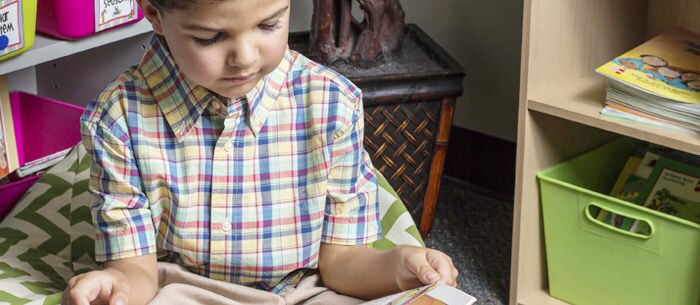Is there a way to raise an organised kid? Can a child be taught to be organised or do they inherit these traits? Are some kids naturally messy while others are neat and tidy?
While some children have a more natural tendency to be neat and tidy, being more organized involves skills can be learned and practiced just like anything else. These skills also grow over time into productive habits and learning them early on will help your children develop the key practices that they’ll carry through life.
To get your kids started, here are our four top tips for helping them develop their organizational skills.
1. Set the Example
Raising a well-organized child requires you to model the behavior that you would like to see. Kids seek guidance first and foremost from their parents. From sorting the laundry to cleaning up those piles of junk mail, they’ll pick up on how you organize yourself and then mimic you when they’re asked to clean up after themselves.
One approach is to use a three-tiered method: first start with a ‘do as I do’ approach where you introduce an ideal organizational behavior, then move up to a ‘do as we do’ approach where you and the child practice the ideal organizational behavior together, and finally graduate to the ‘you do’ level where the child adopts the ideal organizational behavior independently.
2. Start Slowly
Make sure to keep it simple when you get going. Take it one step at a time and be sure kids know exactly what’s supposed to happen each step along the way. If you decide to start with a cleaning up task, Lowry recommends dividing it up into chunks: instead of asking your child to clean up all of the toys, work on organizing the blocks or putting away the dolls.
Make sure you have an established place for everything. If kids don’t know where something goes they won’t be able to put it away. Focus on easy, definitive activities and then be clear about how to complete them.
3. Make it Fun
Try to add a little fun to cleanups, for example pick a favorite song to play when you’re doing the chores and singing along. You can also make a game out of organizational challenges, like seeing how fast you can pick up puzzle pieces or Lego blocks. Bring the kids into the kitchen while you’re cooking and doing the dishes so that they get used to watching the meal and cleanup process.
Remember that learning a new skill takes time and practice. It’s important to be patient with kids as they’re working on developing organizational habits. Certainly no one is perfect all of the time. But trying out these methods can help your kids get started on building the early skills to stay organized for life.
4. Form Habits
Your best bet for instilling life-long coordination practices is to start early. Working on small, age-appropriate organizational challenges at first, like putting away toys or placing dirty clothes in a hamper, and then moving up to more advanced tasks, like helping with chores and sorting personal belongings. Getting “buy-in” from the beginning can make a big difference in building lasting skills.
To reinforce these early lessons, you want to try to foster good organizational habits. The goal is to provide your children with enough guidance while they are young so that they have the right structure, but enough freedom to develop their own routines as they grow up. Sorting blocks will later become folding socks, and organizing coloring books will later become organizing school books. Your aim is to lay the groundwork to set them up for success.
How do you teach kids to be organized? Share your secrets in the comments section below.
